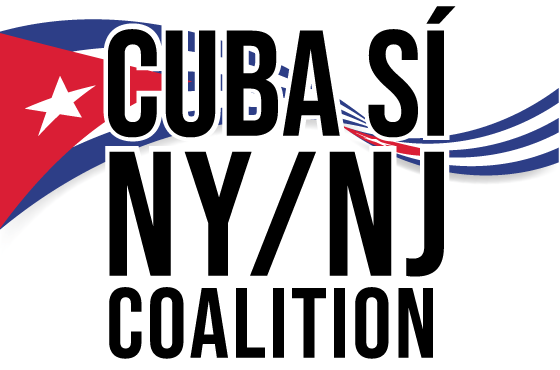Meet the ‘Cuban Five’ at the center of the blockbuster U.S. announcement on Cuba
By Adam Taylor of the Washington Post
On Wednesday, Obama administration officials confirmed to The Post that Cuba has freed American citizen Alan Gross. Gross, who was detained in December 2009 while working as a subcontractor for the U.S. Agency for International Development, had been accused of espionage and sentenced to 15 years in prison by Cuba. His imprisonment was a major problem in relations between Washington and Havana.
Gross was not freed by accident. According to ABC News, his release is the culmination of more than a year of “secret back-channel talks at the highest levels of both governments.” And, importantly, his release comes at the same time as an agreement by the U.S. government to release three Cuban citizens, part of the “Cuban Five.”
Here’s a breakdown of why the Cuban Five are so important.
Who are the Cubans being released?
Their names are Gerardo Hernández, Antonio Guerrero and Ramón Labañino. They are part of the Cuban Five, a group of Cuban nationals convicted of spying in Miami in 2001. The two other members, René González and Fernando González, have already been released (in 2011 and earlier this year, respectively).
Why were they arrested?
The Cuban Five had been sent to South Florida by the Castro government to gather information about exile groups. As part of what was referred to as the Wasp Network, they would infiltrate anti-Castro groups and then send back information to Cuba through what the Associated Press described as “encrypted software, high-frequency radio transmissions and coded electronic phone messages.”
Cuban intelligence officers had been operating in the United States for years and been monitored by various government organizations. However, after Cuban fighters shot down two planes in 1996 that were carrying U.S. citizens working with an exile group, Brothers to the Rescue, the U.S. government began a crackdown. The FBI arrested the Cuban Five in Miami in September 1998.
In June 2001, after a lengthy trial, the five were convicted on espionage charges (Hernández was also found guilty of a conspiracy to commit murder for his involvement in the 1996 incident), and they received sentences that ranged from 15 years to life in prison.
Years of legal battle followed. René González was released in 2011 and required to serve out three years of probation in the United States, but a judge ruled in 2013 that González could stay in Cuba, where he had traveled to attend his father’s funeral, if he renounced his U.S. citizenship. Fernando González (no relation) was released earlier this year and immediately deported.
Are they a big deal in Cuba?
Yes, they’re huge: Their faces adorn murals and stamps, and “even schoolchildren can recite details of the case,” The Post’s William Booth wrote in 2009.
Havana has also argued that the Cuban Five were not spying on the United States and that their punishment was out of proportion. Many Cuban supporters also say that their trial, held in Miami, was colored by anti-Castro sentiment and the aftermath of the Elián González affair. But perhaps the biggest aspect of their support comes from how they’re perceived in the country — not as spies, but as agents working to stop terrorist attacks.
Stephen Kimber, author of “What Lies Across the Water: The Real Story of the Cuban Five,” explained that position in a 2013 article for The Post. “In the early 1990s, after the demise of the Soviet Union made the collapse of Cuba’s communist government seem inevitable, Miami’s militant Cuban exile groups ratcheted up their efforts to overthrow Castro by any means possible, including terrorist attacks,” Kimber writes, and U.S. authorities mostly looked the other way. It fell to groups such as the Cuban Five to try to protect the country, he argues.
The Wasp Network has been credited with foiling a 1994 plot to set off bombs in Havana’s iconic Tropicana nightclub, for example, though other plots, such as 1997’s bomb attacks on Havana hotels, succeeded. Castro’s government claims that the Cuban Five were arrested only after a meeting between Cuban intelligence officials and FBI agents in 1998 about alleged plots coming from exile groups in the United States. “They shot the messenger,” Ricardo Alarcón, president of Cuba’s National Assembly, told The Post in 2006.
Will there be a backlash over their release?
Almost certainly: When news of Gross’s release spread, the first headline to run on the conservative Drudge Report Web site read simply: “Obama to release three Cuban spies.” For many who support the blockade on Cuba or operate in the Cuban exile community, the Cuban Five deserved to be in prison.
When reports of a possible prisoner exchange between Washington and Havana involving Gross and the Cuban Five circulated in 2012, there was a notable pushback. “The Cuba Five should serve their sentences for spying,” Sen. Robert Menendez (D-N.J.) told NBC News. This time is no different. “It puts a price on every American abroad,” Florida GOP Sen. Marco Rubio said Wednesday.
Probably because of this, U.S. statements on the release of the Cuban Five have been cautiously worded so far, arguing that there was no prisoner swap and that Gross was released separately on “humanitarian grounds.”


Comments are closed.